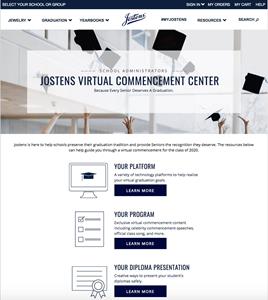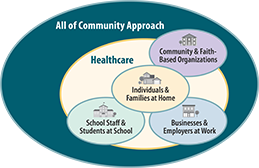
MSAA Matters
May Special Edition Volume II
May 18, 2020
Please see the minutes from the MSAA Finance Committee's meeting with Commissioner Jeffrey C. Riley from Thursday, May 14th 2020. Once again Vice President, Julie Vincentsen did an outstanding job summarizing the hour long meeting and capturing the salient points.
Dear Colleagues,
On Thursday, May 14, 2020, the Massachusetts School Administrators Association (MSAA) Finance Committee met with Commissioner Jeffrey C. Riley for our quarterly meeting. Below is a summary of that meeting. The Commissioner began with a review of where we are as an educational community in the Commonwealth. Following that summary, we discussed the questions that the membership had submitted.
Phase I of the school closure began on March 16th with a focus on getting students and staff home safely. School systems worked to set up 1300 feeding centers, to provide mental health supports and to determine technology needs of their districts. The Massachusetts Department of Elementary and Secondary Education (DESE) provided guidance and worked to create a partnership with WGBH to provide resources for remote learning.
During Phase II of the school closure, DESE’s guidance was for schools to provide remote learning that focused on what was taught prior to the school closure. DESE also encouraged districts to have multiple contacts with families weekly.
We are currently in Phase III of the closure in which schools are now closed through the end of the school year. DESE’s guidance during this phase is for school’s to go further with the curriculum with a focus on the power standards that will support student success in the next grade.
The Department is working on a plan for Phase IV. Their work is focusing on the following questions: How are we going to reopen? What will that look like? Can we do summer programming? Can they all come back? Do we need to wear masks and take everyone’s temperatures upon entry? Do we need to maintain social distancing? DESE has established a working group that is up and running. Richard Pearson, MSAA Assistant Executive Director, is our representative to this group as well as Chris Dodge, Principal of Dexter Park Elementary School (Orange Public Schools), Vincent Hayward, Principal of Norton Middle School (Norton Public Schools), William Terranova, Principal of Cape Cod Regional Technical High School.
DESE has contracted with Ed Davis founder of the Ed Davis Company, a security consulting firm. He is the former Boston Police Department Commissioner from 2006 to 2013, including during the bombing of the Boston Marathon. In partnership with Ed Davis’ firm, doctors, epidemiologists, and educators will constitute this working group to determine the best way to get students and staff back into school safely. In discussing Phase IV, the Commissioner recognized the stranglehold of COVID-19 on this work.
Will there be guidance from DESE on high school graduation? On May 18, 2020, the Governor will be discussing the Commonwealth's plan for re-opening. DESE is waiting to hear that plan prior to issuing additional guidance on graduation ceremonies. The Commissioner did remark that he has been quite impressed with the creativity of many districts including the use of Drive In Movies as graduation spaces. DESE is committed to taking actions and/or offering guidance based on the scientific information provided by the medical community.
When guidance is given regarding Phase IV, will there be autonomy for district’s to interpret that guidance similar to Phases I-III? In Phase IV there will be some ability to localize, but unlike in the past this will be “more directed” and non negotiable based on the medical community.The Commissioner strongly suggested that districts should not get ahead of themselves. We need to wait for directives from the medical community. He recognizes that scheduling is one of our biggest challenges at this point.
During this conversation the Commissioner did share that we should be prepared for contingencies such as staggered schedules to lessen the number of people in a school at a time. For example, half of a school may come one week while the other half is participating in remote learning. These options were just floated and are not the only options that will be under consideration.
The Commissioner emphasized that we will all have to have a lot of flexibility and that much of our planning for Phase IV will have to take place over the summer. He is hoping that the working group will have the guidance document ready by mid-June if not earlier. However, he is not sure when it will be released because the Governor may ask him to wait. Commissioner Riley recommended that districts start with what you think you can do and start playing out some scenarios.
We are worried that, as the weather becomes warmer, student engagement will decrease. Has DESE considered shortening the school year? Commissioner Riley stated, “We are not at this time considering doing that.” He shared that DESE initially capped the school year at 185 school days. While most school districts need to count the week of March 16th as snow days, DESE is allowing districts to appeal that remote learning was up and running that week. If districts are able to make a credible case that this was the case, the School Committee chairperson could write a letter to that effect. The Department is not considering anything further at this time.
Can the Commissioner give some help with travel companies like EF Tours who are not providing refunds for cancelled trips during the school closure? MSAA, on behalf of members who asked for support, reached out to the Commissioner’s office prior to this meeting regarding this. The Commissioner shared that, at that time, he had his legal counsel call the Attorney General’s office a few weeks ago to look into this. The Attorney General is well aware of this issue. The Commissioner is encouraging anyone impacted by a travel company - parents, Principals, Superintendents, students - to file a complaint with the Attorney General’s office. If we can mobilize enough people to file a complaint, the Attorney General would be persuaded to tackle these companies' “no refund policies”. To file a complaint visit:
https://www.mass.gov/how-to/file-a-consumer-complaint
Will DESE be giving more detailed guidance on grading? In the Phase II guidance document, DESE recommended a credit/no credit system. As DESE values local control on this, further guidance will not be forthcoming.
As more and more parents are requesting retention, will DESE be providing guidance on this issue? This is an issue that will be determined at the local level. While all decisions should be made on a case by case basis, the Commissioner’s recommendation is to the greatest extent possible, students should be promoted to the next grade level. The Commissioner advised administrators to look at the breadth of research that is not supportive of the impacts of retention and to be judicious on who you decide to repeat.
What will happen to this year’s Science MCAS? The Commissioner shared that next year we should expect the 10th grade MCAS to be administered in the late fall or early winter. He recognizes that the Biology test will be more tricky. He expects that further guidance on this will be published in the next week and half.
Will the June 30th deadline for FY20 spending be extended? Bill Bell, Senior Associate Commissioner and the CFO of DESE addressed this question. He stated, “As a general rule all state funding that you receive is good through June 30th. Absent any legislative changes those funds expire at the end of the fiscal year.” He did share that he is having conversations with the Ways and Means Committee at the State House about the reality that there will be under spending this year due to the school closure. He is encouraging them to not see this underspending as a message that the funds are not needed. Mr. Bell did caution us that the Commonwealth is looking at a $4-6 billion shortfall overall.
What should we be doing with the MCAS materials that have been delivered to schools? The Commissioner asked that all paper based testing materials be secured at the school and returned when school reopens. Test Administrators should follow the same protocols to do this as we did in other years. Call the MCAS Service Center if you have questions.
Visit “www.mcasservicecenter.com (select MCAS from the menu, select UPS Pickup Request from the list of options, then follow the onscreen instructions). Schools will need to locate a UPS tracking number on one of the RS labels and have that number available when requesting the pickup online. Questions may be addressed to the MCAS Service Center (see contact information in the header of this update). Schools should recycle test administration manuals instead of returning them.”
Will we continue to use the power standards next year? The Commissioner is leading a discussion at DESE regarding this. Stay tuned for further guidance. This year’s power standards will not be added to next year’s curriculum. This spring’s power standards will prepare kids to continue on in the next school year. Schools will need to assess students when school begins in the fall and remediate outside the traditional classroom for students who have gaps.
Many adults with compromised immune systems will not be able to return to work if we are together as a school community. Is DESE considering early retirement options? The Commissioner has raised this issue with the current administration and has not yet heard from them. He shared that this issue recently came up with the Mayors’ Association as well. The Commissioner stated, “We will continue to float the idea up to the government.” If we are back in schools in the fall, the Commissioner said we will have to look at this issue on a case by case basis.
How can we possibly conduct effective special education evaluations for students remotely? Is there a new testing protocol that anyone is suggesting? The Commissioner stated, “While conducting assessments for initial evaluations and reevaluations for determining special education eligibility can be challenging, certain assessment activities can occur remotely, particularly reviewing existing data. In some cases, a key component of the evaluation process is the review of existing data, such as the results of curriculum based assessments used as part of a Response to Intervention (RtI) model. Reviewing existing data and previous assessments can then be used as part of the reevaluation process. In the case of students transitioning from early intervention to early childhood settings, the team can accept the evaluations completed by the early intervention provider and review those evaluations in order to determine eligibility for early childhood services.Reviewing existing data is certainly more feasible in most cases than conducting new assessments remotely. However, DESE asks that district and school leaders continue to watch for advancements in the development of remote assessment solutions.”
What are the minimum requirements for Kindergarten screening? Will there be any statutory relief to this legislative mandate? Teams can accept evaluations from pre-school and review existing data to meet the legal requirements. However, DESE asks that we look for remote assessment solutions. Focus on the data you have and collect what you can remotely such as the parent survey. The Commissioner is working very closely with the co-chairs of the Joint Committee on Education at the State House and they are discussing statutory relief if we continue with remote learning in the fall. The Commissioner stated, “While there isn't an exact requirement for the components of kindergarten screening, it makes sense for schools to gather all the information they can at this time (parent survey, etc.) and then complete the bulk of the screening process when school resumes in person.”
We shared our written testimony to the Joint Committee on Education hearing with you. What are your thoughts? The Commissioner shared that he felt it was a very comprehensive document and that he appreciated the advocacy for increased funding. He stated, “My guidance has been to pay your paras, bus drivers, your food service workers. I want to protect our sector and keep us whole.” He shared that his reasoning for this was that the money was already encumbered in budgets and he did not think adding more people to the unemployment lines was a good idea. He also encouraged districts to continue to pay for transportation and special education schools. While some disagreed with that guidance, he felt they were being “penny wise and pound foolish. He reiterated that he wants to “protect the educational family” in the Commonwealth.
He shared that our testimony speaks to the next phase of spending; what he called round two. “We know that there could be a 4-6 billion dollar budget deficit.” Districts may need to cut their local budgets 10% or more. He posited, “What can we do as an education community to make sure we have the least amount of cuts?” The Commissioner reminded us that, “Schools historically have been the last place to “cut” but also cautioned that “there is a very real possibility of real pain.” Commissioner Riley encouraged us to continue “to advocate for our sector moving forward. Your testimony was spot on, comprehensive, and well done.”
Respectfully Submitted,
Julie Vincentsen
MSAA Vice-President
Principal, Hanscom Primary School
Hanscom Air Force Base, MA
Lincoln Public Schools
Have a great week and stay safe.
Warm Regards,
Beth
Beth Wittcoff
MSAA Assistant Executive Director
MSAA Matters Newsletter
Middle Level and Elementary Committee Liaison
Social Media
Zoom Gatherings
MSAA High School Gatherings Mondays @ 3:00 PM
MSAA Special Education Gatherings Tuesdays @ 11:00 AM
MSAA Assistant Principals every Tuesday beginning May 19th 2:30 PM
MSAA Middle Level Gatherings Tuesdays @ 3:20 PM
MSAA PK - 6 Gatherings Tuesdays @ 4:10 PM
MSAA ELLs Gathering Thursdays @ 2:00 PM (cancelled)
MSAA All Levels Gathering Thursdays @ 4:00 PM
MSAA Assistant Principal Appreciation Hour Friday, April 17th at @ 3:00 PM
























